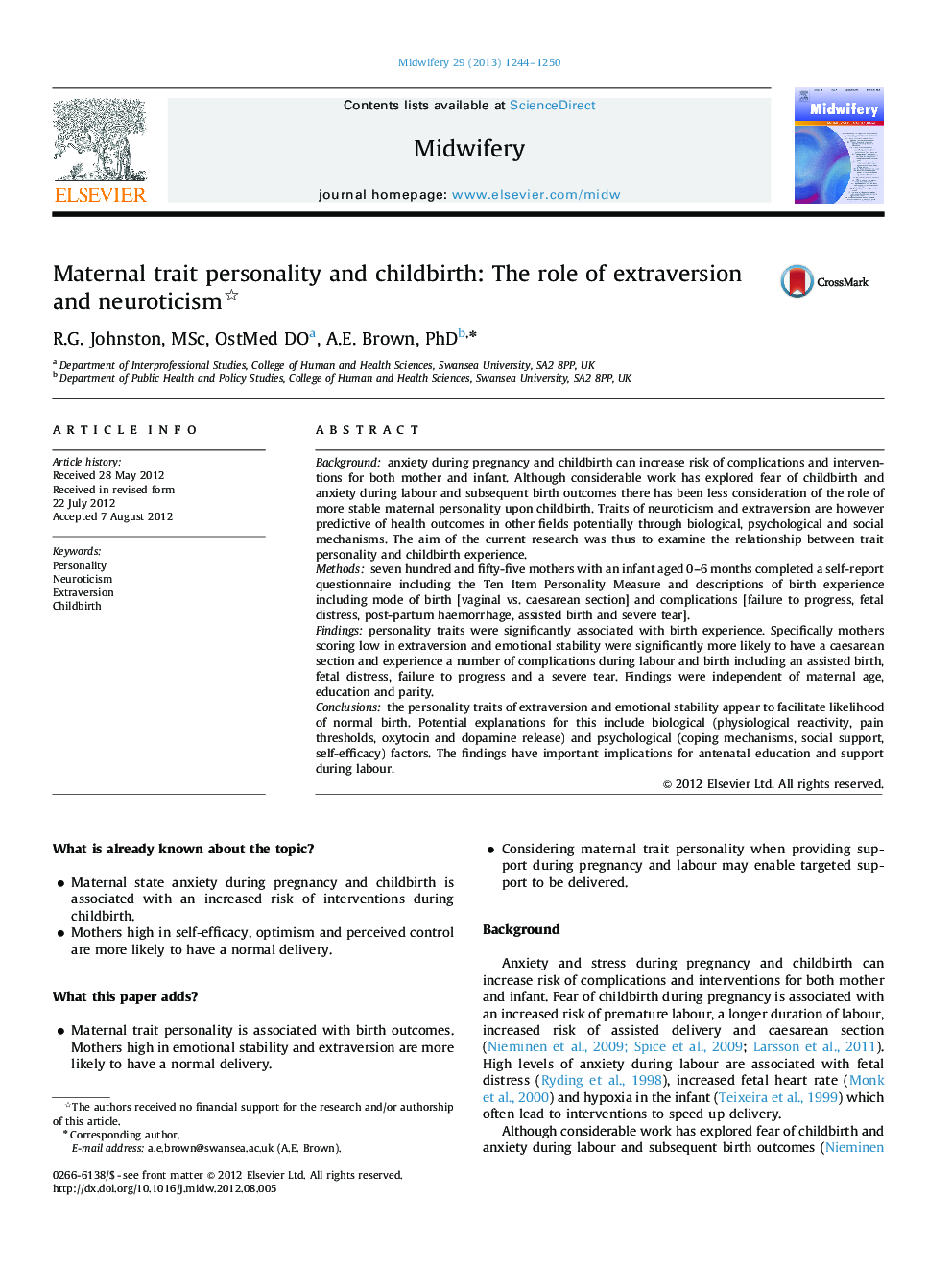| Article ID | Journal | Published Year | Pages | File Type |
|---|---|---|---|---|
| 1084753 | Midwifery | 2013 | 7 Pages |
Backgroundanxiety during pregnancy and childbirth can increase risk of complications and interventions for both mother and infant. Although considerable work has explored fear of childbirth and anxiety during labour and subsequent birth outcomes there has been less consideration of the role of more stable maternal personality upon childbirth. Traits of neuroticism and extraversion are however predictive of health outcomes in other fields potentially through biological, psychological and social mechanisms. The aim of the current research was thus to examine the relationship between trait personality and childbirth experience.Methodsseven hundred and fifty-five mothers with an infant aged 0–6 months completed a self-report questionnaire including the Ten Item Personality Measure and descriptions of birth experience including mode of birth [vaginal vs. caesarean section] and complications [failure to progress, fetal distress, post-partum haemorrhage, assisted birth and severe tear].Findingspersonality traits were significantly associated with birth experience. Specifically mothers scoring low in extraversion and emotional stability were significantly more likely to have a caesarean section and experience a number of complications during labour and birth including an assisted birth, fetal distress, failure to progress and a severe tear. Findings were independent of maternal age, education and parity.Conclusionsthe personality traits of extraversion and emotional stability appear to facilitate likelihood of normal birth. Potential explanations for this include biological (physiological reactivity, pain thresholds, oxytocin and dopamine release) and psychological (coping mechanisms, social support, self-efficacy) factors. The findings have important implications for antenatal education and support during labour.
